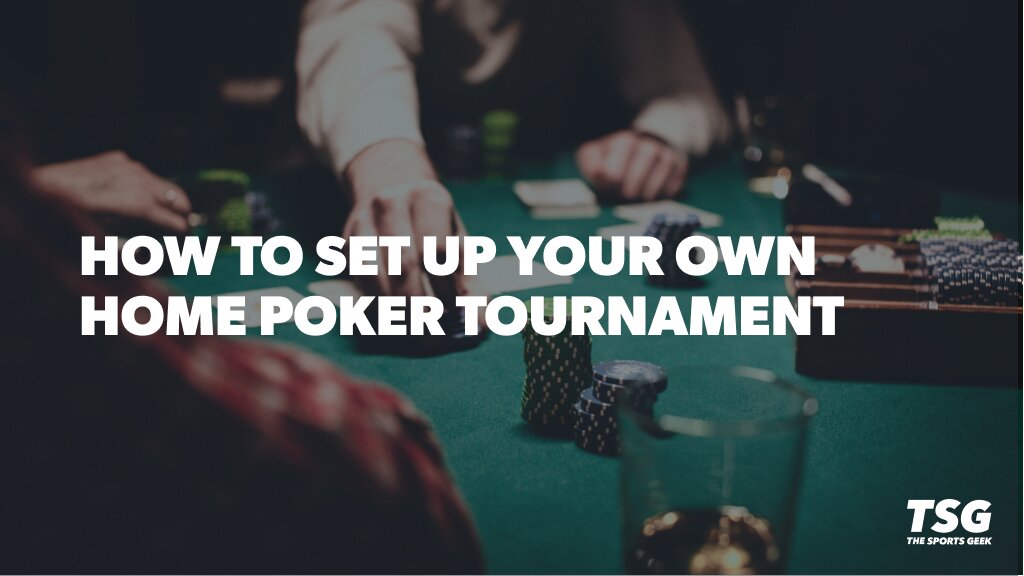
Home poker tournaments are a great way to enjoy your favorite card games with your friends and family. However, you need to spend some time to prepare properly and deliver an enjoyable experience for everyone.
I will break down everything you need to know about how to run a poker tournament at home: structure, rules, spacing, prizes, beverages, and more!
Setting Up a Home Poker Tournament Checklist
Here’s a quick checklist of what you need to properly run a poker tournament at home, with more info on each point below.
1. Check the Local Laws and Regulations
First things first, you must check your local laws regarding home poker tournaments before setting one up to avoid legal trouble. In most states, you should be fine as long as you don’t charge the participants with rake or other fees.
However, some jurisdictions have laws so restrictive that even home poker games are prohibited. Ensure that you are allowed to operate a home poker tournament before investing effort into organizing the game.
2. Figure Out the Home Poker Tournament Payout Structure
If you are legally allowed to run your own poker tournament, your next step is deciding the basics of the event, including:
-
- What game you will play
- The buy-in amount
- How many people will be in the tournament
- The number of people who will win money
- How to distribute the prize pool
Your first step is to decide what game will be played and how many people you want to invite. Additionally, you need to determine the buy-in amount.
Bigger prizes can attract more players, but higher buy-ins can deter players. Find the comfort zone that would add some thrill for everyone without costing the losing players too much cash.
Once you have the number of participants and the buy-in set, you can calculate the total prize pool for the event. Knowing the prize amount will help you decide how many people will make the money and how to distribute the prize pool.
Here are a few examples of reasonable distribution based on the number of players:
7-13 Players
-
- 1st: 50%
- 2nd: 30%
- 3rd: 20%
14-19 Players
-
- 1st: 40%
- 2nd: 30%
- 3rd: 20%
- 4th: 10%
20+ Players
-
- 1st: 40%
- 2nd: 20%
- 3rd: 15%
- 4th: 13%
- 5th: 12%
3. Blind Structure for Home Poker Tournament
Your home poker tournament blind structure is another important factor to decide on.
Every player in the tournament should start with the same amount of chips. Additionally, every table should use the blind structure and advance to higher blinds simultaneously.
To decide on the best blind structure, you need to know the number of players, how long you want the tournament to go on, and the starting blind level. It is also helpful to know the total number of chips in the tournament and the number of rounds it will consist of.
The most common structures for home games involve 2/5 or 5/10 blinds at the start, doubling the blinds every one or two levels.
l tournament time by the number of rounds to decide how long each round will last. Then, use the total number of poker chips to decide how much the blinds will increase by each round. Players will have more chips later in the event, but the blinds cannot be so large that they exceed the total number of chips in play.
There are blind structure calculators you can use to assist you in deciding on the blinds for your event.
Home Poker Tournament Starting Chips
Your players need chips to bet on the poker games in the tournament. Giving every player the same number of starting chips ensures an even playing field for all. The exact number should depend on the blind structure.
Ideally, you want to have 100+ big blinds for each player at the start, so there’s some room to play at a slower pace.
Home Poker Tournament Clock
The tournament clock is another aspect you should recreate in your home event. Progressing to hire blinds at set times helps games move faster by forcing players to wager more aggressively. Also, make sure the clock is somewhere so that all players can easily see it.
You can use an electronic device like a laptop or tablet with a timer. Just put in a visible place, so all players have the information at all times.
4. Equipment for a Home Poker Tournament
You will also need physical equipment to run your home poker tournament. Some of the items you will need are:
-
- Poker tables
- Several sets of identical chips
- Multiple decks of cards
Before you can run your tournament, you will need enough tables, sets of chips, and decks of cards to support the number of players in the event. A typical poker table fits nine players, so it is a good rule of thumb to have one table, set of chips, and deck for every set of nine players in the event.
The chips should be from identical sets, too. This will make it easy to compare chip counts across tables throughout the event.
Each game also needs a dealer. Players can rotate dealing cards, or, if you can afford it, you could hire dealers to work the event.
5. Room and Spacing
Having enough poker tables is not the only concern when hosting a poker tournament. You will also need enough space for the tournament to operate.
Poker tables are not huge, but they can quickly become cumbersome if you try to fit multiple tables into a single room. You want your players to have enough space to be comfortable and not interfere with other games.
6. Food and Beverages
Speaking of keeping your players comfortable, consider what food and drink options you will have available. Poker tournaments can last a long time, so it’s essential to provide food for your guests.
If you have the funds, you can get a local restaurant to cater the event. Alternatively, consider having players bring food for a potluck to go along with the tournament. As the host, do your best to ensure players have access to food and drink while they are playing without having to leave the table.
Additionally, if your players are eating and drinking for hours on end, ensure they have easy access to restrooms.
Prefer to Play Online?
When done correctly, a home poker tournament can be a lot of fun. However, as you can see, hosting the tournament can be a lot of work. Luckily, there are easy options for playing in tournaments online.
Bovada is a fantastic option for playing in poker tournaments online. It offers multiple styles of tournaments, including Sit n Gos, and excellent prize pools on any day of the week.






You must be logged in to comment. Don't have an account? Sign up today.